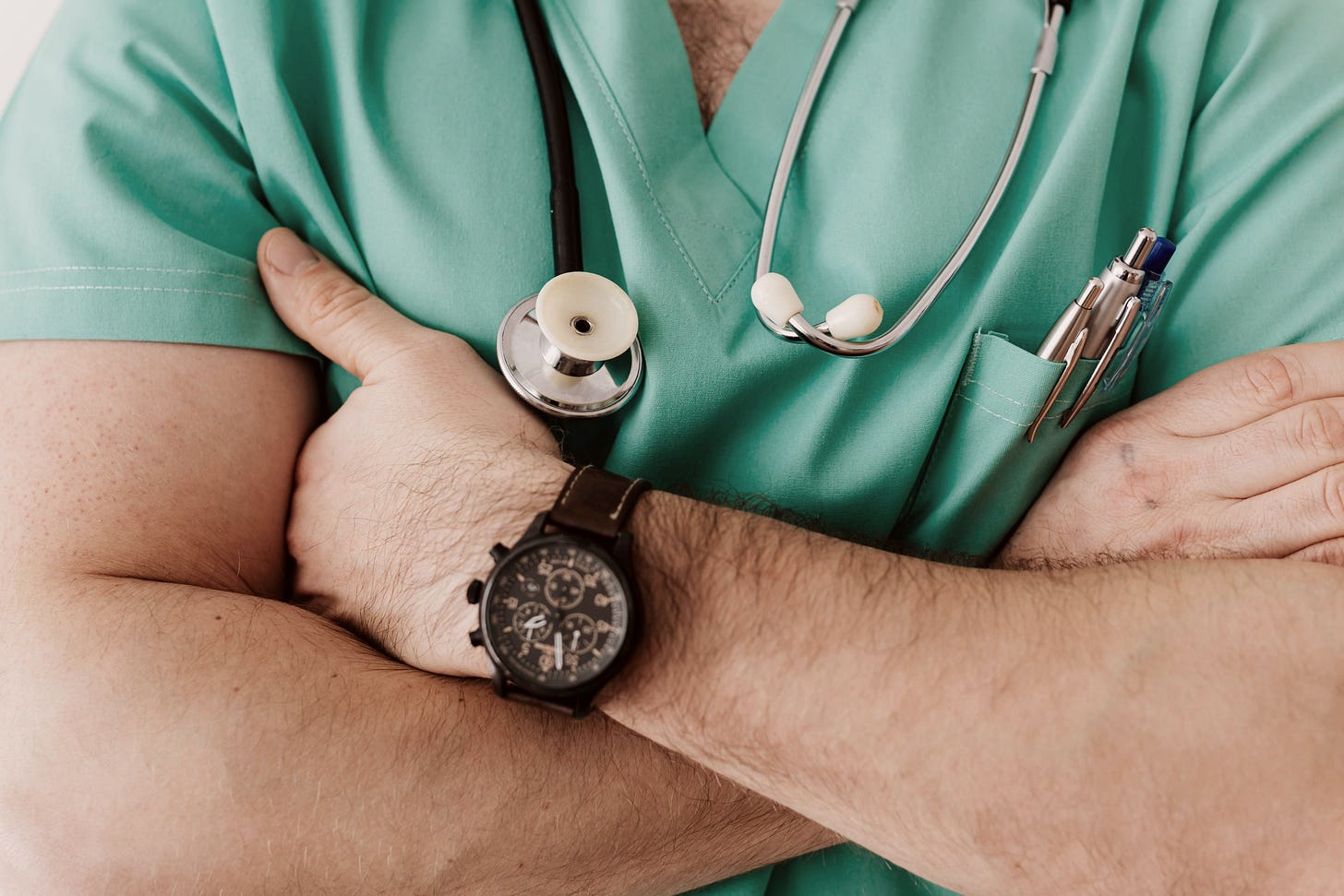Ask Beastly: How Do I Find a Gay-Friendly Doctor?
Gay men deserve sex-positive, stigma-free healthcare.
Hi, Alexander.
I just signed up after hearing you read in Atlanta. Is this the right spot to ask questions? Hopefully so. If not, just let me know, and I'll do it right next time. My question is: do you know a good way to gauge if a doctor is gay-friendly and/or well-versed in gay health issues, particularly of a sexual nature? I find myself delaying or avoiding things like colonoscopies etc, because I'm not sure how a doctor will react seeing my obviously well-used butthole. I realize it's more an issue with myself, and I probably shouldn't let it hold me back, but I think it does subconsciously. It would just be easier to know the doctor isn't judging. Is there a resource perhaps that gay men in more rural areas can use to help with this issue?
Thanks,
Brad
Hi Brad,
Congrats on having a well-used butthole. That’s the mark of a sex beast—proof of a good life. And thank you for coming to my reading in Atlanta! You heard an essay I had not read in public before. It will appear in my second book.
The only way to find a gay-friendly doctor is to talk to gay men in your area. This is one of so many reasons why men like us need friends like us. We need our tribe, our community, because we all share similar health risks and valid concerns like this. We’ve all experienced judgement—from subtle raised eyebrows to overt, verbal condemnation—in healthcare. Often, physicians are simply uninformed; I can’t tell you how many gay men I’ve spoken to who had to explain to their doctors what PrEP is and why they need it. When I tested positive (at a small, rural clinic in the Deep South), my doctor recommended I go to church and suggested a local youth group. “Don’t worry,” she said, “They’re very welcoming.”
I don’t know which small town you live in. In the small town I’m from, no medical practice will advertise as gay-friendly, and no doctor will publicly cater to queers. A gay man who lives there will simply need to ask around; his primary resource will be other gays and learning what doctors they trust and recommend. Often, this is a doubly good way to go about it, as doctors who officially aren’t accepting any more patients might be willing to sneak another in if they’re a friend of a longtime patient—this is, in fact, how I got my excellent doctor in Berlin. Community connections with other gays make a huge difference.
The explicitly gay-and-queer-friendly clinics are in big, progressive cities. This is partly why I left my small college town for Los Angeles, so many years ago. This is why I have lived in big cities ever since. When I left college, I was HIV-positive, so I needed a doctor who specialised in HIV care. In L.A., New York, and all other cities I have lived in, HIV clinics are queer clinics. These places know their clientele and provide services tailored to the needs of queer people. If an HIV clinic does not present itself as a safe place for gay and queer men—with its signage or on its website—you’re at the wrong place; don’t go there. A lot of men I know who are HIV-negative still get their primary care from an HIV specialist doctor or HIV clinic because these doctors and clincis predominantly cater to gay and queer people and are attuned to the needs and health factors of our community. HIV clinics are safe spaces.
Use the “HIV clinic = queer-friendly” rule, even if you’re HIV-negative. These places are where you can be honest about your sex life. If there is an HIV clinic in your area, it likely provides STI testing, social work services, mental health services, addiction services, and so on. It might even provide primary care. At the very least, someone there should be able to give you a list of primary-care physicians in the area who are gay and queer friendly.
Finding a good doctor—one who does not flinch over fisting or judge my sexual history—has been and will be a lifelong struggle. Every time I move somewhere new, I hunt again. This is stressful and defeating, but it is necessary. We all have to do it.
You are not alone. Your best allies are local gays, your brothers. Asking a guy where he gets health care might not sound like a hot conversation, but it could save your life.
Love, Beastly

